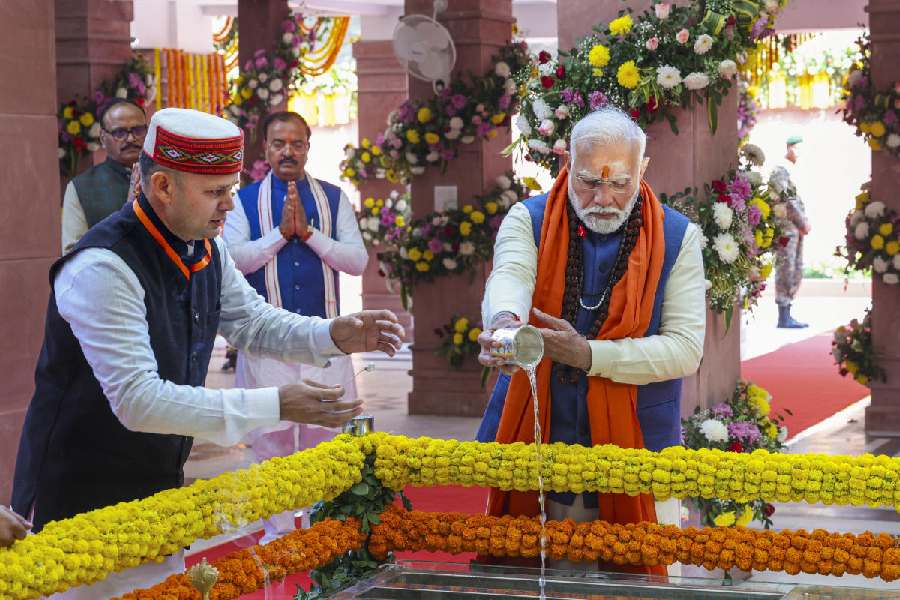Veteran Congress leader Mani Shankar Aiyar has said he never called Narendra Modi a 'chaiwala' and that his strong belief that the BJP leader was unsuited for the prime minister's post was not based on his tea-selling past.
Aiyar addresses the controversy surrounding his comments in the lead up to the 2014 general elections in his forthcoming book 'A Maverick in Politics' published by Juggernaut.
In the book, the 83-year-old Aiyar talks about his early days in politics, navigating through the P V Narasimha Rao years, his time as a minister in UPA I, his Rajya Sabha term and then his "decline...fade out...fall".
Aiyar narrates in the book that for him, personally, the 2014 elections began on a wrong note when the AICC convened in a pre-election plenary session on 17 January, 2014 in New Delhi and he was interviewed in the convention hall of the Talkatora Stadium.
Modi, the presumptive BJP PM candidate, was being bruited about as the obvious winner of the coming general elections, he says in the book.
"I was utterly horrified that a man stained, I thought irretrievably, by the 2002 carnage of Muslims in Gujarat, could aspire to lead the India of Mahatma Gandhi and Jawaharlal Nehru," he says in the book.
So, in the interview, Aiyar said he stressed that it was outrageous for a man who did not know that Alexander had never come to Pataliputra or that Taxila (Takshashila) was in present day Pakistan to seek to step into Jawaharlal Nehru's shoes.
"The people of India would never accept this, I said, adding, 'Never! Never! Never!' in thundering tones. I then quipped that if, after he lost the election, Modi still wanted to serve tea, we could make some arrangements for him here," he says.
"This was touted then -- and ever since -- as my having said that Modi could not become PM because he was a 'chaiwallah'. I never called Modi a 'chaiwallah' and never advanced his having been a 'chaiwallah' as the reason for my believing he would never make it to the post of PM," Aiyar states in the book.
Indeed, the person who said he was a 'chaiwala' was Modi himself -- to stress his somewhat doubtful claim to humble beginnings, he further says.
"The video of my remarks is still available on YouTube for anyone who cares to look. I have often invited my media critics, and even my party colleagues, to check this out but they just do not want to because they are committed to their totally false premise that I had indeed described Modi as a 'chaiwallah' who, therefore, could not be the PM," the Congress leader says.
The irony of Modi himself having claimed to be a 'chaiwala' is lost on them, he adds.
"Not knowing that this would become the main media story a few hours later, poor Rahul Gandhi singled me out from my obscure corner in the audience to publicly affirm that my championing of Panchayati Raj made me the kind of role model of what the party aimed at ensuring," Aiyar recounts.
Gandhi also added Sam Pitroda to make us twin role models for party workers, Aiyar recalled.
"The media and Modi played out my alleged (but wholly untrue) remark about Modi being unfit to rule as PM because (as he claimed) he had begun life as a 'chaiwallah'. This was no more than a hollow election gimmick that the election pundit, Prashant Kishor, who was given much of the credit for Modi's stunning electoral victory, told me he had exploited to the full through the 'chai pe charcha' events that he stage managed with a hologram (then unknown and unprecedented) of Modi joining the tea drinkers," Aiyar says.
"It gave the handle to elements in the Congress party to divert attention from the real causes of the party's humiliating collapse at the hustings to shift the blame on this one remark put out in sarcastic, if sneering, jest," Aiyar says in the book.
In the book, Aiyar also deals with other controversies involving him, including the 'neech' remark row.
He claims Modi twisted his comments to claim that he had described him as a 'low-caste' man which was "completely untrue".
"The Congress campaign in Gujarat was running on the wholly misconceived notion that Rahul Gandhi was going to win the state in his very first election outing after being elected party president. So, the party and the leadership persuaded themselves that I had upset the applecart," he says.
"No one cared to ask me or check the video. No one paused to ask themselves whether, given my personal background and my long record of diplomatic and political service, I could ever have thrown out a casteist slur. No one even checked out Modi's long record of twisting words in no-holds-barred election contests, where facts and truth are the first casualty," he says.
Except for the headline, this story has not been edited by The Telegraph Online staff and has been published from a syndicated feed.











